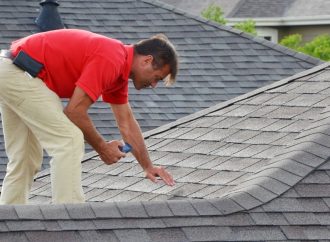Drooling During Sleep: Decoding What Your Saliva Can Unveil About Your Rest Embark on a journey through the night, delving into the enigmatic world of sleep and saliva, guided by David Wolfe, an expert in lifestyle and wellness. In this exploration, we unravel the intriguing phenomenon of drooling during sleep and what it might signify
Drooling During Sleep: Decoding What Your Saliva Can Unveil About Your Rest
Embark on a journey through the night, delving into the enigmatic world of sleep and saliva, guided by David Wolfe, an expert in lifestyle and wellness. In this exploration, we unravel the intriguing phenomenon of drooling during sleep and what it might signify about the quality of your rest and your overall health. Discover the untold secrets that lie within a seemingly ordinary act.
The Unconscious Symphony of Sleep
Sleep is a vital component of our lives, consuming a significant portion of our daily routine. It is a complex biological process, during which our bodies engage in a symphony of restorative activities. Our muscles relax, memories are consolidated, growth hormones are released, and our immune system strengthens, all contributing to a rejuvenated self by the time we wake up.

Image by: https://www.diabetescarecommunity.ca/diet-and-fitness-articles/physical-activity-articles/what-are-the-best-exercises-to-control-blood-sugar/
The Science Behind Saliva Production During Sleep
Saliva is often viewed simply as the liquid in our mouths, assisting in digestion and speech. However, its importance goes beyond that. Saliva is a powerhouse of enzymes and proteins that initiate the digestion process as soon as we start chewing. During the night, our salivary glands don’t cease their work; they continue to produce saliva at a reduced rate.
Saliva’s Functions
Saliva plays a crucial role in maintaining oral health. It helps in washing away food particles, neutralizing acids, and fighting off harmful bacteria. Additionally, it aids in digestion, as the enzymes in saliva initiate the breakdown of starches and fats in our food. Moreover, it facilitates speech by allowing smooth movement of the tongue and lips.
Nighttime Saliva Production
Contrary to common belief, saliva production does not halt when we drift into slumber. It continues, albeit at a diminished pace, helping to maintain a moist oral cavity. This is essential for overall oral health, preventing issues like dry mouth that can lead to dental problems.
Drooling: A Window to Your Sleep Quality
Drooling during sleep, often brushed aside as a minor inconvenience or an embarrassing incident, can offer intriguing insights into the quality of your sleep and even potential health concerns.
Sleep Position and Drooling
The position in which you drool may indicate the quality of your sleep. For instance, sleeping on your back can relax the muscles in your mouth and throat, causing an increase in saliva production and potentially leading to drooling. This could be an indication that you are reaching a deep stage of sleep.
Drooling and Deep Sleep
Research suggests that those in deep sleep stages might experience an increase in drooling. This is fascinating as deep sleep, or slow-wave sleep, is a critical phase where the body and brain undergo substantial restoration and rejuvenation.
Potential Health Indicators Revealed by Drooling
Potential Respiratory Issues
Excessive drooling during sleep could be a signal of an underlying respiratory issue. Conditions like sleep apnea, where breathing is repeatedly interrupted during sleep, or nasal congestion, can cause difficulty in breathing through the nose, leading to mouth breathing and consequently, drooling.
Dental Health Concerns
Drooling can also be associated with oral health issues. Improper alignment of teeth and jaw, gum disease, teeth decay, or other dental problems might contribute to increased saliva production and drooling during sleep.
Ways to Manage Excessive Drooling During Sleep
Sleep Positioning
Simple adjustments in your sleep position can help manage excessive drooling. Elevating your head slightly can prevent the pooling of saliva in your mouth, reducing the likelihood of drooling.
Hydration Management
Ensuring you’re adequately hydrated throughout the day can regulate saliva production and potentially reduce nighttime drooling.
Improving Your Sleep Quality: Tips and Tricks
Establishing a Routine
Creating a consistent sleep schedule helps your body acclimate to a predictable sleep-wake cycle. Aim for seven to nine hours of quality sleep per night, aligning with your body’s natural circadian rhythms.
Relaxation Techniques
Incorporating relaxation practices like deep breathing, meditation, or gentle stretching into your pre-sleep routine can calm your mind and body, setting the stage for a restful slumber.
Expert Insights: David Wolfe’s Perspectives
Understanding our body’s signals is crucial for maintaining optimal health. Even seemingly minor signs, such as drooling during sleep, can be valuable indicators of our overall well-being. David Wolfe emphasizes the importance of paying attention to these signals and using them as tools for improving our sleep quality and overall health.
Stay tuned as we decode the intriguing connection between drooling during sleep and our well-being. Join David Wolfe in this fascinating exploration into the secrets that saliva may hold about our restful nights.





















Leave a Comment
Your email address will not be published. Required fields are marked with *